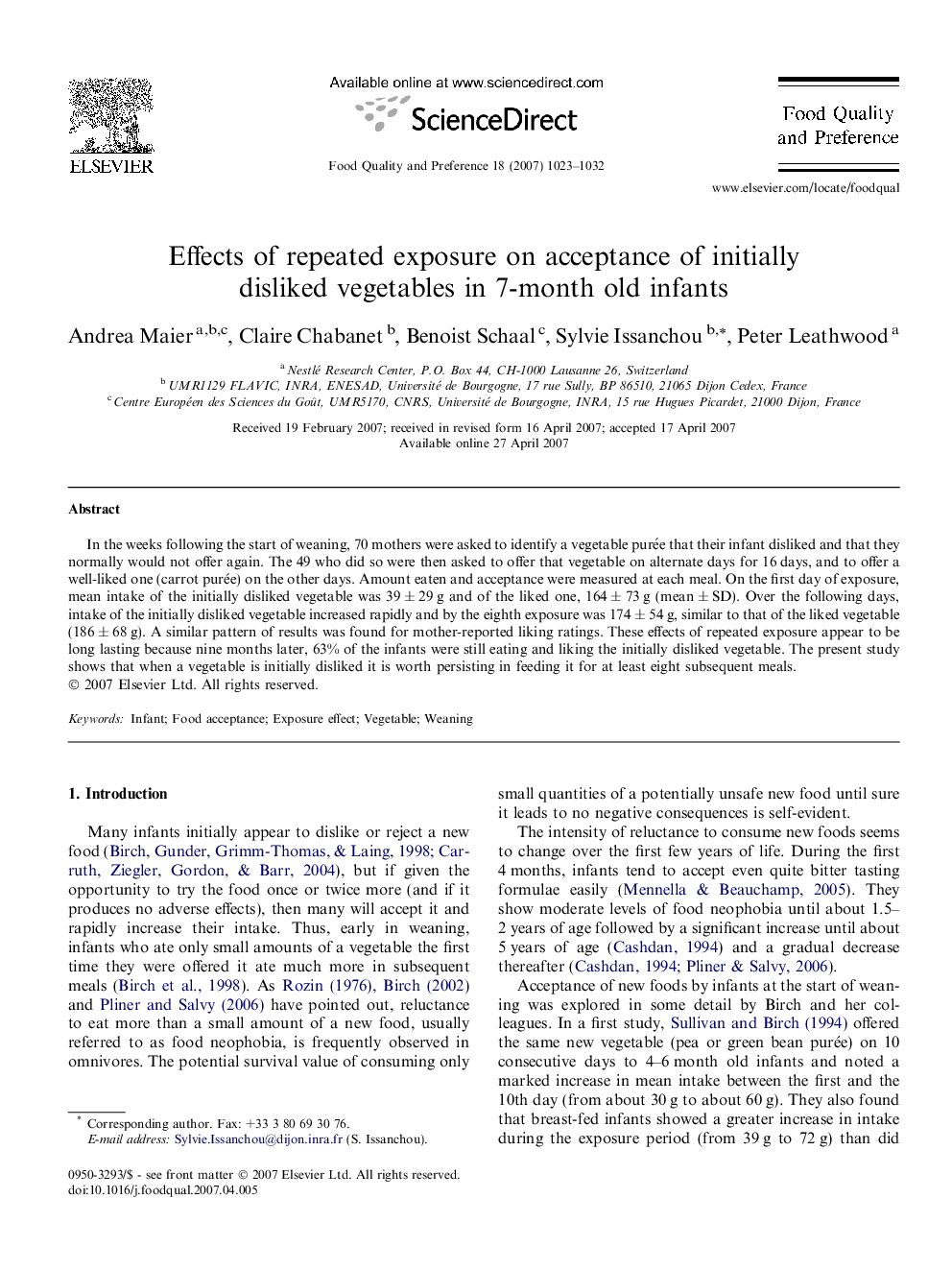| Article ID | Journal | Published Year | Pages | File Type |
|---|---|---|---|---|
| 4318107 | Food Quality and Preference | 2007 | 10 Pages |
In the weeks following the start of weaning, 70 mothers were asked to identify a vegetable purée that their infant disliked and that they normally would not offer again. The 49 who did so were then asked to offer that vegetable on alternate days for 16 days, and to offer a well-liked one (carrot purée) on the other days. Amount eaten and acceptance were measured at each meal. On the first day of exposure, mean intake of the initially disliked vegetable was 39 ± 29 g and of the liked one, 164 ± 73 g (mean ± SD). Over the following days, intake of the initially disliked vegetable increased rapidly and by the eighth exposure was 174 ± 54 g, similar to that of the liked vegetable (186 ± 68 g). A similar pattern of results was found for mother-reported liking ratings. These effects of repeated exposure appear to be long lasting because nine months later, 63% of the infants were still eating and liking the initially disliked vegetable. The present study shows that when a vegetable is initially disliked it is worth persisting in feeding it for at least eight subsequent meals.
